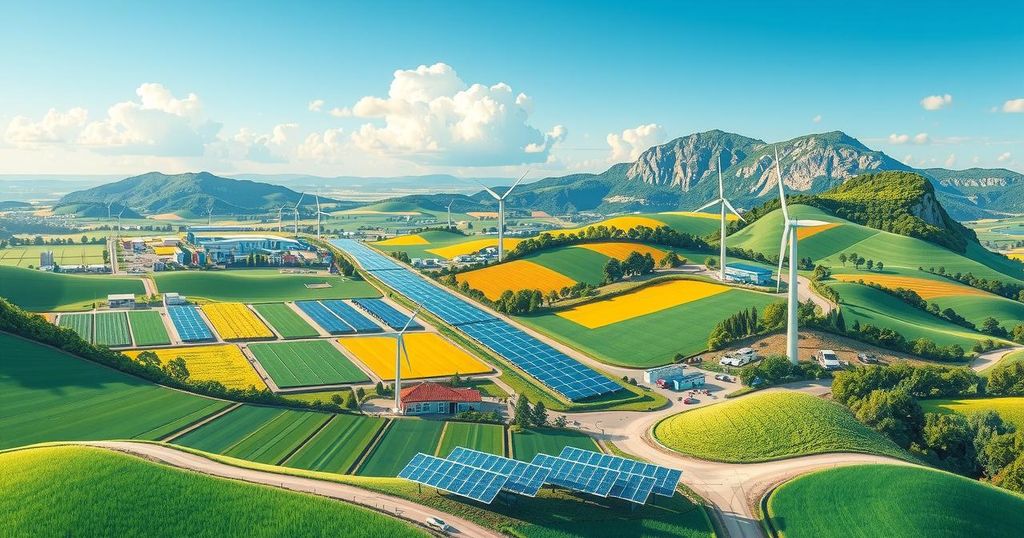Strategies for Transforming Bangladesh’s Investment Landscape into Economic Impact
Bangladesh can enhance its economic growth by learning from Vietnam and Rwanda’s success stories. Strategic investments focused on infrastructure, workforce development, and governance are crucial for sustainable growth. By diversifying its manufacturing sector and embracing digital transformation, Bangladesh has the potential to achieve meaningful impact and development.
The economic growth of a nation resembles farming; it necessitates both a strategic approach and conducive conditions for success. Vietnam and Rwanda exemplify how intelligent investments, guided by appropriate policies, can lead to significant transformation. Although Bangladesh has made notable advancements, to achieve substantial progress, it must focus on the quantity and quality of its investments.
Vietnam’s transition from a centrally planned economy to an industrial stronghold was not happenstance; it stemmed from deliberate decisions made during the 1986 Đổi Mới reforms. These reforms catalyzed the establishment of essential infrastructure, such as roads and ports, and encouraged foreign investment through Special Economic Zones, facilitating the nation’s rise as a manufacturing leader.
For Bangladesh, the vision extends beyond garment manufacturing—it could also develop industries such as electronics, IT, and automotive. By examining Vietnam’s blueprint, Bangladesh can harness similar success through diversified industrial growth. Furthermore, substantial investments in infrastructure, akin to Vietnam’s allocation of nearly $120 billion between 2010 and 2020, are paramount for achieving economic goals.
In addition to roads and factories, the human factor plays a crucial role in growth. Vietnam invested heavily in education, particularly in technology and engineering, resulting in a highly skilled workforce adaptable to modern industrial demands. Bangladesh must similarly enhance its educational system, emphasizing vocational training and STEM subjects to unlock its young population’s potential.
Trade policies and business facilitation were instrumental in Vietnam’s economic rise. Streamlining regulations and minimizing bureaucratic obstacles considerably enabled businesses to flourish. Bangladesh is well-positioned to simplify its policies, thereby fostering entrepreneurial spirit and attracting foreign investments.
Rwanda serves as another beacon of hope, having transformed its destiny through focused decisions following its 1994 genocide. It invested in technology, good governance, and transparency, rapidly growing into one of Africa’s fastest-growing economies. With initiatives to enhance agricultural efficiency via mechanization and irrigation, Rwanda demonstrates that modernization can spur growth even in traditional sectors.
Strong governance structures have cemented Rwanda’s stability. Effective anti-corruption measures foster trust and investment allure, paralleling Vietnam’s similar efforts to enhance transparency and accountability in governance. Bangladesh, too, could benefit by prioritizing these principles, ensuring public funds are managed with integrity and efficiency.
In conclusion, while Bangladesh has made impressive strides, there remains ample opportunity for enhancement. By diversifying manufacturing, upgrading infrastructure, and investing in human capital, the nation can replicate Vietnam’s and Rwanda’s successes. The focus should not solely be on financial expenditure but rather on judicious investment strategies that generate sustainable, impactful growth for the future.
In summary, Bangladesh stands at a pivotal point where strategic investment, infrastructure development, and education reform can usher in significant economic growth. By drawing lessons from Vietnam and Rwanda’s respective successes in governance and industry diversification, Bangladesh can build a robust economy that prioritizes sustainable development and real impact. The key lies in wise investment decisions that harness the nation’s potential and pave the way for lasting progress.
Original Source: thefinancialexpress.com.bd




Post Comment